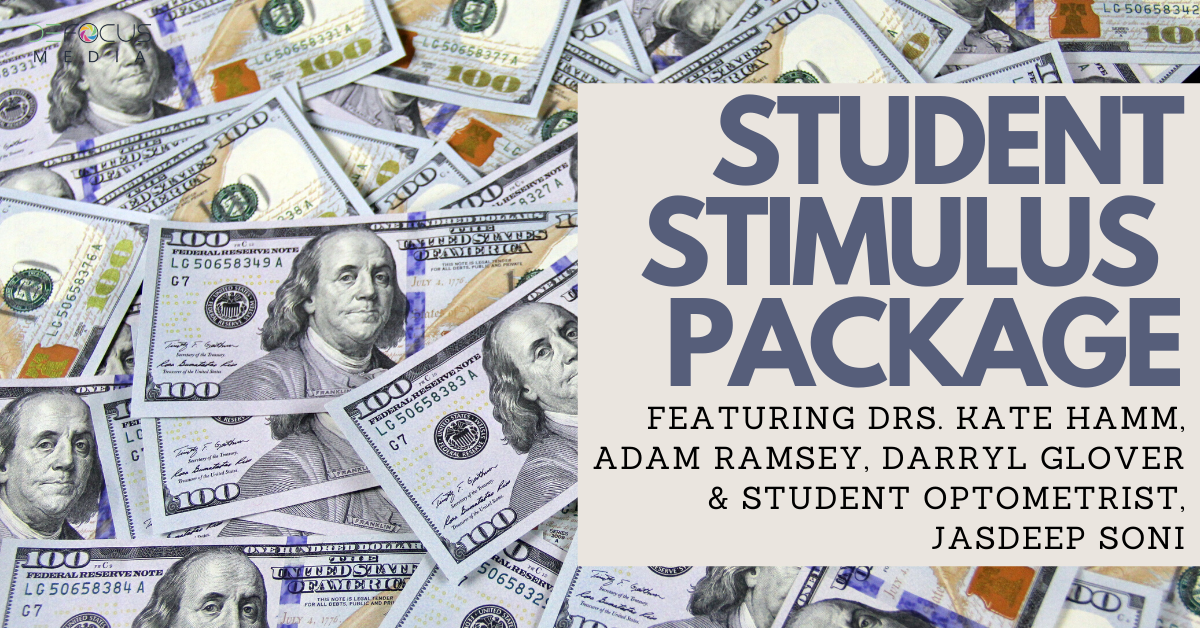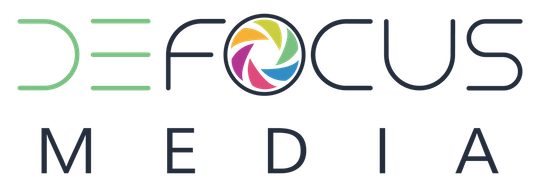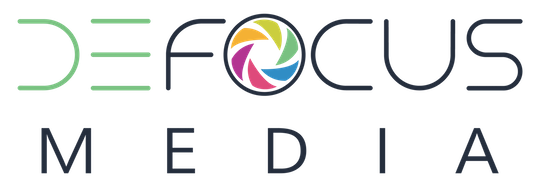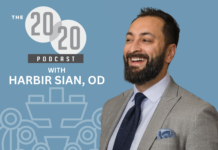Podcast: Play in new window | Download
Subscribe: Apple Podcasts | Google Podcasts | Spotify | Amazon Music | Android | RSS

COVID 19 has disrupted graduations, the job market, and salary and benefits for many practicing doctors. Dr. Darryl Glover (PCO ’11) is joined by Dr. Adam Ramsey (SCO ’12), Dr. Kate Hamm (UMSL ’19), and 4th-year student Jasdeep Soni (AZCOPT) for this discussion of the optometric landscape that students and new graduates are faced with during this difficult time. Soni paints a stark picture of the anxiety and uncertainty facing graduating optometrists: national boards which students were aggressively studying for had to be abruptly canceled, and with canceled clinical care there are questions about delays in graduation time to complete required patient care hours.
For doctors that are entering the job market, it’s not the time to forget your value. Dr. Kate Hamm has done extensive research on negotiation techniques and she shares her top 5 tips for maximizing your contract.
5 Tips for Maximizing our Contract
1. Do Your Research: What is the average salary for optometry in your area? The US Labor Bureau of Statistics and Covalent Careers are great places to look for average salaries state by state.
2. Know Your Unique Value: Think about areas of passion or specialty care. Do you have a unique educational background? For example, Soni had an undergraduate degree in marketing that brings unique value to his future employer. Dr. Ramsey shares that he especially values associate doctors that bring an interest or specialty above and beyond the specialties that he already provides in his office or that has insights on business knowledge for how to improve the practice. Saying that you did a low vision rotation in school may not be that persuasive to a hiring doctor, but if you know how to run a low vision specialty and make it a profit center for a small business, that’s an associate doctor that would make a big impression!
3. The Negotiation is Not A Battle: Know that you and the person you are negotiating with are on the same side. Come in with a positive attitude and “You are battling a number, not each other
4. Know Your Walk Away Number: To effectively negotiate, you need to know your budget and the minimal number that you can accept and be both happy and financially solvent, and if the practice is unable to offer it to you, it’s not the right practice opportunity at this time. It’s ok to walk away.
5. Find the Balance: Benefits can make up for lower salaries. Ask for more vacation days or additional CE days above and beyond paid vacation time. Production bonuses, starting bonuses, or coverage of moving costs can all provide added benefits to a contract.
As a practice owner, Dr. Ramsey shares that his own timeline for bringing on an associate doctor has been delayed due to COVID19. Many practices are similarly affected where plans for growth or expansion may have been temporarily slowed. He advises doctors who are entering the job market to understand that there is a give and take during the negotiation. “You can’t get all of the benefits and the highest salary.” For example, he shares that if an associate doctor wants a high production bonus, a lower base salary will go along with it. Some people will prefer a higher base salary and a lower production bonus. But the practice will have finite resources that all benefits and salary have to pull from. He also shares insights into the types of benefits that practice owners will be more hesitant to provide. Paid vacation for example is difficult for small practices to front – paying you to not work and not provide value to the practice is difficult for a small business owner to justify.
A few great questions came from the live discussion! Dr. Justin Bazan asked how starting salaries may be affected by COVID19? Personally, Soni shared that he has had several interviews postponed and is having to be more creative and proactive than he expected to find job postings. Dr. Hamm encourages doctors to stay positive about demand for optometry going forward. All of the patients that needed exams in March, April, and now into May are going to need care and at a certain point, practices may start feeling the need to hire doctors again to reduce the strain on their practices to serve all of the patients that were postponed. She encourages doctors to understand that in some cities where the market is highly saturated by optometry salary numbers may likely be lower, but in areas that are underserved salaries are less likely to be impacted. Dr. Glover shares that many corporate optometry locations are still hiring without any seen impact on salary offers.
What other long-term impacts may we see? Dr. Ramsey predicts that older or less financially healthy practices or where doctors were close to retirement age anyway may decide not to reopen after this setback. He has also seen an influx of patients to his private practice that have come to his office for urgent and emergent care from nearby corporate competitors who plan to stay with him because of the personal care and service he has offered during this time. “Private practice is alive and well. We’re alive and we’re going to get through this. As an entrepreneur, the only constant is change!”
What About Student Loans?
Passed in the CARES Act was legislation where federal student loans are now in forbearance, meaning payments are not due and loan amounts are not accruing interest. It may be a good time to consolidate your loans if you are still getting your full salary or are in a financially safe situation. If you consolidate your loans, however, you may still owe interest and your payments may still be due!
Other Resources
For students, Soni recommends checking out the AOSA, GPLI and Wills Eye for educational videos to help supplement the lack of patient care and lab time.






